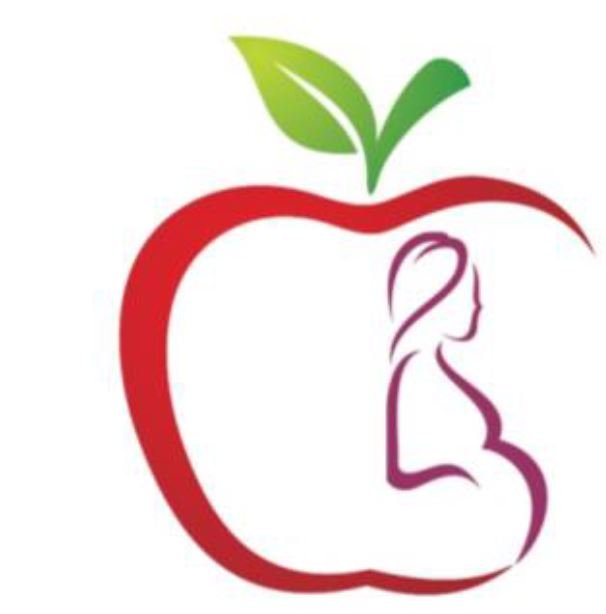Women of color are disproportionately impacted by gestational diabetes (GDM), a common pregnancy complication, and are two to four times at greater risk of developing type 2 diabetes after having GDM. Our mixed-methods A1c in Pregnancy and Postpartum Linkage for Equity (APPLE) NYC Cohort Study investigates the association between social and built neighborhood environments and postpartum hemoglobin A1c trajectories, how policies influence both neighborhood and individual risk factors of the progression from gestational diabetes to type 2 diabetes. We are also exploring what are the lived experiences of women of color, living in NYC, who had GDM during pregnancy and how their neighborhoods, social support, and healthcare teams shaped diabetes postpartum. The APPLE Cohort study is made possible by our collaborative teams at Icahn School of Medicine at Mount Sinai and the Bureaus of Vital Statistics and Equitable Health Systems at the New York City Department of Health and Mental Hygiene.
The GLOBE Initiative
Increasing awareness of structural racism and health care inequities has fueled new urgency to train medical students in the social and structural determinants of health. In collaboration with our colleagues at Icahn School of Medicine at Mount Sinai, our Galvanizing Learning in Obstetric and Gynecologic Equity (GLOBE Initiative) program seeks to address the know-do gap in equity training among medical students. The GLOBE Initiative aims to provide medical students with the skills to use an intersectional framework to improve clinical interactions with racial, gender, and sexual orientation diverse patient populations, and use research to improve equity and quality in OB/GYN care. Our GLOBE Community Advisory Board will be comprised of medical students and advocates from reproductive justice and LGBTQIA+ communities who will ensure that core competencies in antisexist and antiracist frameworks are embedded in our program.
Under longstanding federal law, Pregnancy Medicaid and CHIP are guaranteed to cover healthcare up to 60 days postpartum. Our “Postpartum Outcomes and Extension of Medicaid: POEM for Equity” study evaluates the maternal health equity impact of expanding postpartum Medicaid coverage to up to 12 months under COVID-19 related policy changes. We are using an adaptive concurrent mixed methods design to understand how the extension affected rates and utilization of postpartum Medicaid coverage, as well as racial, ethnic, and nativity disparities in access to and utilization of postpartum healthcare services. Through qualitative interviews, we are gathering stories about how these changes affected the experiences of birthing people with Medicaid and CHIP, healthcare workers, and policymakers involved in the postpartum coverage extension. POEM for Equity is conducted through collaboration with our research partners at Icahn School of Medicine at Mount Sinai, NYU Grossman School of Medicine, the SUNY University at Albany, and UTHealth Houston.
The COVID-19 pandemic has pushed long-standing racial-ethnic disparities in health and health care into the spotlight, and pregnancy is no exception. Our coronavirus Impact on Birth Equity Study looks at how racism and the COVID-19 pandemic effects postpartum outcomes. Our overarching goal was to better understand the association between experiences of racism, COVID-19 related stress, community resilience, and postpartum cardiovascular and mental health outcomes among Asian, Black, and Hispanic birthing people in Philadelphia and New York City. This research project wouldn’t have been possible without our research collaborators at the University of Pennsylvania, Icahn School of Medicine at Mount Sinai, and our Community Working Group comprised of birth justice advocates.
Gen C Mamas Study
In the United States, lung disease and cardiovascular disease (CVD) are leading causes of death and shortened healthspan. Exposure to place-based structural racism is a form of chronic stress that can negatively impact lung and heart health during pregnancy and especially during postpartum. Having poor CVD and lung health during pregnancy and postpartum can set the stage for future chronic disease risk. In partnership with Dr. Alison Lee and Dr. Sarah Nowlin at Ichan School of Medicine at Mount Sinai, our Gen C Mamas, an embedded mixed-methods study, follows 440 Global Majority women and examines how their exposure to place-based structural racism, during pregnancy and postpartum, impacts future cardiopulmonary health. Gen C Mamas uses a framework that incorporates theories of structural racism, the life course model of multimorbidity, resilience, and weathering. We will be using this framework to analyze focus group data from a subgroup of 30 individuals who were invited to be part of the qualitative Photovoice study. Stay tuned for more information and updates on how our Gen C study is going!
Research Collaborations
Postpartum, aka the “4th Trimester” is increasingly seen as an important period for preventing Maternal morbidity and mortality which disproportionately impacts Global Majority birthing. Delivery admission presents an opportunity to screen patients for risk of adverse outcomes, such as depressive symptoms and hypertension, resulting in postpartum readmissions and emergency department visits. We developed a novel equity-informed prediction model of postpartum hospital utilization (PHU) using LASSO logistic regression and machine learning approaches. Our model predicts all causes of PHU performed better than “standard” stratification approaches in racial-ethnic disparity reduction and could be used to identify patients at high risk of developing postpartum complications. Our 4th Trimester study is part of a larger project led by Dr. Elizabeth Howell at the University of Pennsylvania. This work was conducted in collaboration with investigators at the University of Pennsylvania Perelman School of Medicine, Icahn School of Medicine at Mount Sinai, Paris Descartes University, and the University of Washington.
Growing HoPE
Community-based doula care, which includes services throughout the maternal care continuum from early pregnancy through an extended postpartum period, offers a pathway to address the social determinants of health and may reduce disparities in maternal and infant health outcomes. However, there is little existing evidence of the implementation and impacts of doula care for people experiencing homelessness/housing insecurity or who are justice-involved*, who may experience unique needs and barriers to doula care. Thus, rigorous research is urgently needed to adapt and evaluate doula care programs for vulnerable communities to prevent widening maternal and infant health disparities. The Growing HoPE Community-Based Doula program, led by Dr. Sheela Maru at Mount Sinai, seeks to provide community-based doula services to pregnant people who are justice-involved or housing insecure. Informed by community perspectives, the VIBE lab is designing an evaluation of the Growing HoPE program in collaboration with colleagues at Ichan School of Medicine at Mount Sinai and NYC Health + Hospitals, and provides expertise regarding study design, quantitative instrument development, and quantitative data analysis. The evaluation aims to assess the feasibility, effectiveness, acceptability, and reach of the Growing HoPE program, as well as provide important information for policymakers and doula programs about the benefits of doula care for vulnerable populations.
*Includes individuals currently experiencing incarceration or who has prior experience with the justice system.
The VIBE Research Lab is currently funded by the Helmsley Foundation, National Institutes for Health, the National Institute on Minority and Health Disparities, the National Institute of Diabetes and Digestive Kidney Diseases, the Office of Research on Women’s Health, and the Robert Wood Johnson Foundation.




